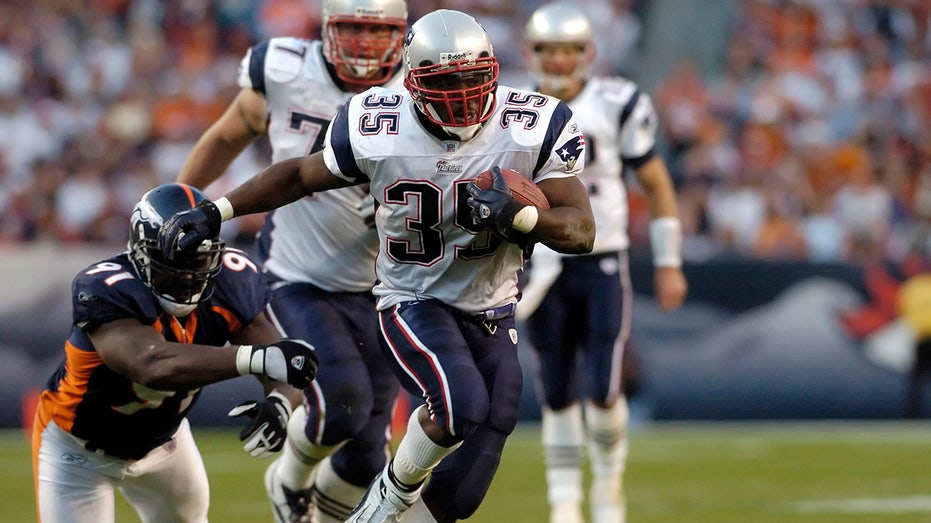Where does faith fit in for today's Democratic Party?
Christianity isn’t a dirty word.

It’s tough these days to say “Merry Christmas” without thinking about the nearly 30 years of culture war baggage loaded on top of that phrase.
Christmas has been a political hot potato ever since disgraced Fox News personality Bill O’Reilly popularized the “War on Christmas” back in the early 2000s. That trend went into grievance hyperdrive with the emergence of Donald Trump and the perpetually victimized MAGA movement. A once noncontroversial holiday has spent decades politicized to within an inch of its life.
Bad-intentioned Republicans like O’Reilly and Trump have been helped greatly by Democrats’ years of retreat from and discomfort with modern Christianity. But now a funny thing is happening. In the wake of Democrats’ electoral defeat last month, some of the party’s Christian leaders are calling for a reconsideration of how Democrats talk about faith issues, with an eye toward reconnecting with a voting bloc they long since surrendered to Republicans.
“It’s unfortunate that in American politics, faith rhetoric has become one more tool in the politics of ‘us and them,’” Georgia Sen. Raphael Warnock told The New York Times. Texas state Rep. James Talarico went further: “Progressives have got to understand that the separation of church and state is not the separation of faith and politics. Unless we do, we’re going to keep losing elections.”
Democrats should start embracing faith communities because many faith communities are belatedly embracing them. In a campaign cycle where nearly every group, from young people to Hispanics and women, all shifted to the right, electoral data shows some Christian sects made unexpected trips leftward. That includes Arizona’s Mormon population, whose communities bucked the state’s rightward trend. Others, including many Baptists, embraced Kamala Harris because they supported embracing LGBTQ Christians as children of God.
Some of this was evident during the campaign, like when rank-and-file Mormons from Utah to Idaho hosted Harris campaign events that explicitly rejected Trump’s particular brand of anti-morality. Even then, many Democrats remained skeptical, still scarred by past experiences with Jerry Falwell’s Moral Majority and the merging of conservative Christianity with the Republican Party. Looking at the hate that false prophets like Falwell and Pat Robertson spent a lifetime spewing, it’s hard to blame Democrats for being skittish.
As a Christian and a Democrat, I understand that hesitation, because for years I shared those same feelings. There is undeniably a tendency among Democrats to look down one’s nose at overt displays of Christianity — churchgoing, Bible reading, even referencing biblical quotes in speeches. Campaign events involving churches often come with lengthy internal debates as staffers agonize over the pros and cons, the implied message, the optics.
Lost in all that triangulation is the fact that, for many Americans, there’s nothing particularly noteworthy about any of those expressions of faith. Democrats’ anxiety about “doing religion,” as one Harris staffer described it to me, showcases how a lack of familiarity and comfort with faith issues can often become a paralyzing and awkward stumbling block for Democrats. For many Hispanic voters who spent decades in the Democratic coalition, the halting way the party engages with faith — when it engages at all — played a sizable role in their decision to abandon the party last month.
The answer isn’t that Democrats need to get better at “doing religion.” It’s that they need to embrace leaders in the party who speak naturally about faith because faith is a central part of their lives. Sens. Elizabeth Warren (Mass.) and Cory Booker (N.J.), as well as Transportation Secretary Pete Buttigieg, all possess a profound and earnest connection to their faith. Unfortunately, Democrats’ general leeriness of “doing religion” means those able messengers often find themselves muting their discussions of faith for fear of alienating the Democratic base.
What a loss for our party.
In that sense, the Republican culture war has been wildly successful. By seeking to draw a contrast from the religious fundamentalist right, Democrats have also abandoned millions of voters who identify more with the religious left. That unilateral withdrawal from the faith conversation allowed the GOP to lay claim to being the official voice of Christianity in America. That has had nightmarish consequences for marginalized groups, for non-Christians, for women seeking abortions — for everyone except the religious right.
Engaging with these tough issues did more than just solidify my own understanding of my faith. It taught me that there are tens of millions of faith-filled people in this country who defy the stereotypes foisted onto them by both the left and the right. Democrats can win those voters back — but first they’ll need to rediscover that Christianity isn’t a dirty word.
Max Burns is a veteran Democratic strategist and founder of Third Degree Strategies.



